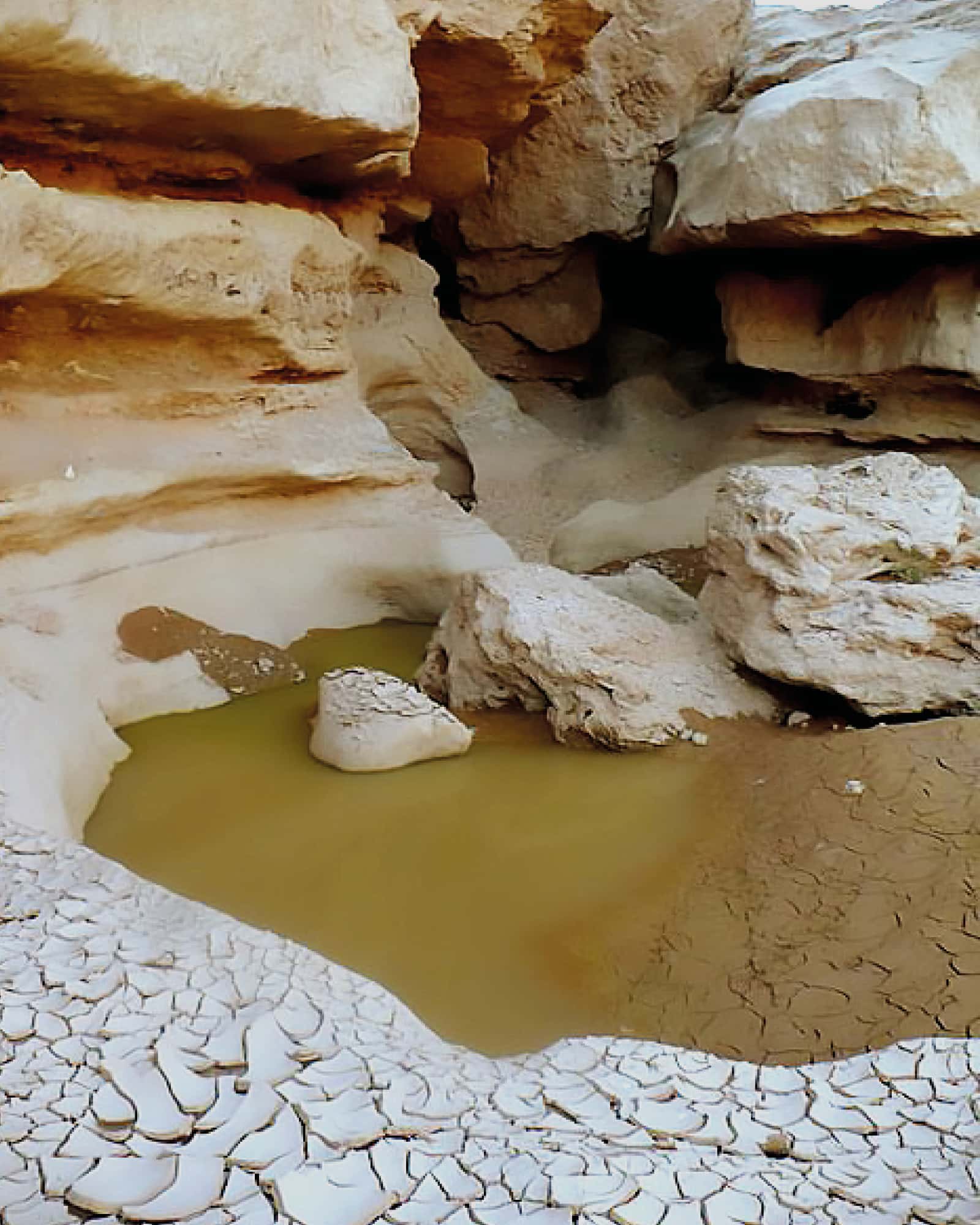

Downloads
DOI:
https://doi.org/10.58981/bluepapers.2024.1.17Published
Issue
Section
License
Copyright (c) 2024 Cristiana Strava

This work is licensed under a Creative Commons Attribution 4.0 International License.
How to Cite
Keywords:
water heritage, indigenous technology, Morocco, socio-technical, underground water systemAbstract
Morocco is considered a water-independent country by the World Bank, yet due to its topographical diversity, considerable land surface, and challenges posed by climate change, it ranks among the most water-stressed countries on the globe. Marrakech, an oasis city in Morocco, thrived for centuries through the ingenious use of khettarat, a traditional system of underground wells and channels that tapped into local aquifers and made use of topography and gravity to sustainably deliver water to the city. Until the early 1990s, Marrakech could still meet all its drinking water demand with the use of khettarat. Owing to a combination of institutional, political and economic factors, the khettarat system went into sharp decline starting in the 1980s and was at risk of disappearing both as a form of heritage and as an Indigenous technology. Recent efforts by multiple stakeholders aim to safeguard and re-introduce khetterat. They demonstrate the importance of local socio-technical systems in ensuring equitable and sustainable development in Morocco and similar arid regions around the world.
References
Bouderbala, Négib. 1984. “Le régime juridique des eaux à usage agricole au Maroc” [“The legal regime for agricultural usage in Maroc”]. In La question hydraulique. Petite et moyenne hydraulique au Maroc [La question hydraulique. Petite et moyenne hydraulique in Maroc], edited by Paul Pascon Paul et al., 45–117. Graphitec: Rabat.
CESE. 2014. “Gouvernance par la gestion intégrée des ressources en eau au Maroc: levier fondamental de développement durable” [“Governance by integrating the resources in Morocco: providing a foundation for durable development”]. Circular AS no. 15 of the Conseil Economique, Social et Environnemental, Rabat, Morocco. https://www.cese.ma/media/2020/10/Avis-Gouvernance-des-ressources-en-eau.pdf.
Dahan, Stephane. 2017. “Managing Urban Water Scarcity in Morocco”. World Bank, Washington, DC.
Davis, Diana K. 2005. “Indigenous Knowledge and the Desertification Debate: Problematising Expert Knowledge in North Africa.” Geoforum 36, no. 4: 509–24. https://10.1016/j.geoforum.2004.08.003
Davis, Diana K.. 2006. “Neoliberalism, Environmentalism, and Agricultural Restructuring in Morocco.” Geographical Journal 172, no. 2: 88–105. http://www.jstor.org/stable/3873982.
Davis, Diana K.. 2007. Resurrecting the Granary of Rome: Environmental History and French Colonial Expansion in North Africa. Athens: Ohio University Press.
Elshamy, Mosa’ab. 2022. “Climate Crisis Threatens Centuries-Old Oases in Morocco.” Aljazeera (December 27). Accessed December 14, 2023. https://www.aljazeera.com/gallery/2022/12/27/photos-climate-crisis-threatens-centuries-old-oases-in-morocco.
Faiz, Mohammed El. 2002. Marrakech: Patrimoine en Péril [Marrakech: Heritage in Danger]. Arles: Acte Sud.
Faiz, Mohammed El, and Thierry Ruf. 2010. “An Introduction to the Khettara in Morocco: Two Contrasting Cases.” In Water and Sustainability in Arid Regions, edited by Graciela Schneier-Madanes and Marie-Françoise Courel, 151–163. Springer: Dordrecht.
Ftaita, Toufik. 2010. “L’hydraulique arabe, innovations techniques et transmissions des savoirs et savoir-faire” [“Arab hydraulics, technical innovations and transmission of knowledge and know-how”]. In Ce que l’Occident doit aux Arabes. Cultures et sociétés [What the West owes to the Arabs. Cultures and societies], n°14, edited by Toufif Ftaita. Paris: Editions Téraèdre.
Guerin, Adam. 2016. “Disaster Ecologies: Land, Peoples and the Colonial Modern in the Gharb, Morocco, 1911–1936.” Journal of the Economic and Social History of the Orient 59, no. 3: 333–65. https://doi.org/10.1163/15685209-12341401
Hssaisoune, Mohammed, Lhoussaine Bouchaou, Abdelfattah Sifeddine, Ilham Bouimetarhan and Abdelghani Chehbouni. 2020. “Moroccan Groundwater Resources and Evolution with Global Climate Changes” Geosciences 10, no. 2: 81. https://doi.org/10.3390/geosciences10020081.
Manfron, G., L. Nisini and L. Panarello. 2023. “Crop Monitoring European Neighbourhood - Morocco, Algeria, Tunisia, Libya and Egypt. In JRC MARS Bulletin: Global Outlook, edited by G. Manfron, M. Van Den Berg and B. Baruth. Luxembourg: Publications Office of the European Union. https://doi:10.2760/244512, JRC133197.
Simon, Sandrine. 2021. Reviving Indigenous Water Management Practices in Morocco: Alternative Pathways to Sustainable Development. London: Routledge.
Strava, Cristiana, and Amarouche, Maryame. 2022. “Introduction to the Themed Section: ‘Commoning the Future’: Sustaining and Contesting the Public Good in North Africa.” Journal of North African Studies 28, no. 1: 9–15. https://doi: 10.1080/13629387.2021.2020481.
Taheripour, Farzad, Wallace E. Tyner, Iman Haqiqi and Ehsanreza Sajedinia. 2020. Water Scarcity in Morocco: Analysis of Key Water Challenges. World Bank: Washington, DC.
World Bank. 2020. “Renewable internal freshwater resources, total (billion cubic meters), 2020.” data.world.bank. Retrieved 2024-01-20.


